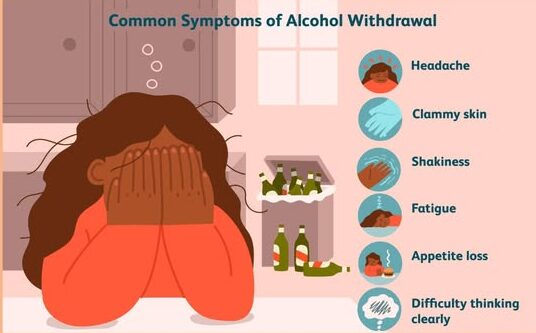
Understanding Common Symptoms of Alcohol Withdrawal: You’re Not Alone
For many people trying to stop or reduce alcohol consumption, one of the biggest obstacles is dealing with withdrawal symptoms. These symptoms can be uncomfortable, overwhelming, and sometimes even frightening. Knowing what to expect — and where to find support — is a crucial step toward recovery.
Alcohol withdrawal occurs when someone who has been drinking heavily for a prolonged period suddenly reduces or stops alcohol intake. The body, which has adapted to the presence of alcohol, reacts to its absence. This reaction can produce a range of physical and mental symptoms.
Here are some of the most common symptoms of alcohol withdrawal that individuals may experience:
1. Headache
Persistent or throbbing headaches are one of the earliest signs of withdrawal. They may occur as your body tries to adjust to functioning without alcohol. Staying hydrated and resting in a calm, quiet environment can sometimes help ease this discomfort.
2. Clammy Skin
Sweating, especially clammy or cold sweat, is another common symptom. The body’s nervous system can become overactive during withdrawal, causing irregular temperature regulation and excessive perspiration.
3. Shakiness (Tremors)
Shaking hands or body tremors can begin within hours after the last drink. This is often a very noticeable and distressing symptom, especially for those trying to go through withdrawal on their own. If the shaking is severe, medical attention may be needed.
4. Fatigue
Withdrawal can take a toll on your body’s energy levels. Fatigue or general exhaustion is common, even if you haven’t done anything physically demanding. It’s your body working hard to rebalance itself.
5. Appetite Loss
It’s not unusual to experience a lack of appetite during withdrawal. Nausea, stomach discomfort, or emotional distress can make eating difficult, but it’s important to try to stay nourished and hydrated.
6. Difficulty Thinking Clearly
Many individuals report feeling mentally foggy or confused while going through alcohol withdrawal. This can interfere with daily activities, problem-solving, or even simple decision-making. It’s a sign that your brain is in the process of resetting itself.
Why These Symptoms Matter
It’s important to understand that alcohol withdrawal symptoms are real — and they are one of the main reasons many people continue to drink, even when they want to stop. The fear of going through withdrawal alone or without help can be powerful and discouraging. But no one should have to face this process by themselves.
At Nunee Health Board Society, we understand the challenges and risks of alcohol withdrawal. We are here to help.
How to Get Help
If you or someone you care about is struggling with alcohol use and wants to stop, know that support is available. Our team of experienced healthcare professionals can help you safely manage withdrawal symptoms and create a plan for recovery that respects your individual needs and pace.
You are not alone. Reaching out for help is not a weakness — it’s a sign of courage and a powerful first step toward healing.
Make an Appointment Today
Whether you have questions, need support, or are ready to start a treatment plan, we encourage you to connect with our Health Care Staff. Compassionate, confidential care is only a phone call away.
📞 Call us at 780-697-3650 to make an appointment or to learn more.
Your health matters. Your journey matters. Let’s walk it together.
Let me know if you’d like this tailored further for print, social media, or email campaigns.
